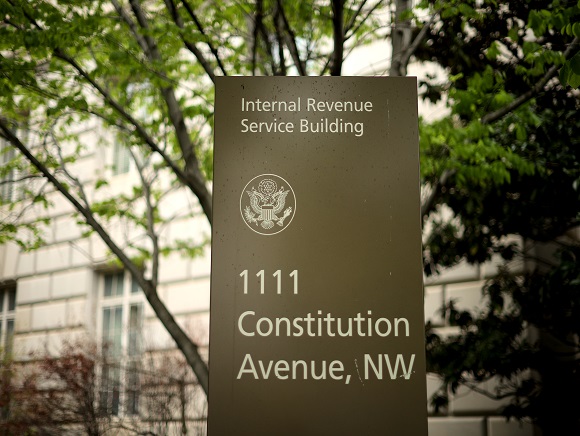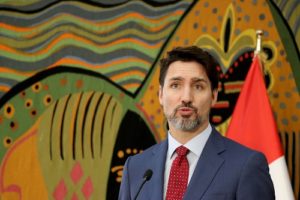Over the last 18 months, the United States government has approved trillions of dollars in new spending without figuring out how to pay for it. The Federal Reserve has been trying to bail out Washington, but the printing presses can only go so far. China is unwinding its holdings of U.S. Treasury securities, while Japan’s share of American debt has remained stagnant. So, Uncle Sam has one target left: U.S. citizens. But even Americans are not willing to pay for the trillions coming out of Capitol Hill.
Who Pays America’s Bills?
According to a new study by the Urban-Brookings Tax Policy Center, 107 million households paid zero income taxes in 2020, up from 76 million in 2019. Or, based on percentages, 61% of U.S. taxpayers paid no federal income taxes last year, up from 44% the year before the COVID-19 crisis. And this figure is not expected to come down for another couple of years.
Tax Policy Center researchers forecast that the share of Americans paying zero income taxes will remain around 57% in 2021. However, the percentage is predicted to drop to 42% in 2022 and hover in this range until 2025. “It’s a really big number,” said Howard Gleckman, a Tax Policy Center fellow, in an interview with CNBC. He added:
“Imagine somebody who would have owed $1,500 in 2020 income tax until they got two stimulus payments — $1,200 in April and $600 in December. That threw them into the category of nonpayers. While the payments resulted in a large percentage increase in their after-tax income, the dollar amount of their tax cut was only a tiny fraction of a high-income filer who received a tax cut of, say, $30,000 from the 2017 [Tax Cuts and Jobs Act], yet still owed some tax.”
So, who will be paying the bills until then anyway? The report further discovered that the top 20% of taxpayers covered close to 80% of federal income taxes, and the top 1% paid more than one-quarter (28%) of taxes. Thus, even before the coronavirus pandemic, the wealthiest of Americans had been paying more than their fair share of levies, defying the notion that the affluent had been non-payers.
Justin Trudeau: Families Over Monetary Policy
Canada is on the road to a federal election that nobody wanted, except for Prime Minister Justin Trudeau, perhaps. Well, at least Canadian voters – and the rest of the world – can be entertained by some of the same flowery and befuddling language the Liberal leader typically espouses, including the latest goodies “she-cession” and “she-covery.”
Speaking at a campaign stop in Vancouver, BC, the prime minister was asked about the Bank of Canada (BoC) and whether he supports changing the central bank’s inflation mandate to pursue higher prices. This was an appropriate question since its 2% target rate is up for review at the end of the year.
Trudeau avoided the query by explaining that he does not think monetary policy will be a critical priority for the Grits after the Sept. 20 election. He told reporters at the press conference: “When I think about the biggest, most important economic policy this government, if re-elected, would move forward, you’ll forgive me if I don’t think about monetary policy. You’ll understand that I think about families.”
The lackluster response prompted his chief opponent, Conservative leader Erin O’Toole, to accuse Trudeau of making “life less affordable” as “regular Canadians are struggling to make ends meet.” Others asserted that this flippant reply was a political blunder since households in the Great White North are worried about the cost of living after the annual inflation rate hit 3.7%.
With about four weeks left until voters head to their polling stations, the latest polls suggest that Trudeau and his Liberals will hang onto their minority government, and the Tories will stay as the Official Opposition. But, ultimately, the electoral results will hardly alter the number of seats controlled by the main political parties based on the recent polling data.
The Dollars and Cents of Children
It is no secret that the U.S. birth rate has been gradually declining for the last 25 years. Earlier this year,, the Centers for Disease Control and Prevention (CDC) reported that the general fertility rate was roughly 56 births per 1,000 women in 2020, the lowest on record. This also represented the sixth consecutive year of a falling birth rate. But why do fewer women have children these days?
According to a new study by Harmony Healthcare IT, money is the top reason why American women do not plan to have these bundles of joy. The survey revealed that 44% cited financial reasons, followed by focusing on their careers (38%) and impacts on their lifestyle (32%). Moreover, 62% of female respondents concede that the cost of raising a child is preventing them from starting a family. Another 61% note that they do not have enough savings for having a son or daughter in this economy.
It is no secret that raising a child costs a lot of money, with some estimates coming in at a quarter of a million dollars (excluding college savings) per kid. In addition, the physical, emotional, and mental health components are also taxing on both the mother and father, concerns that are highlighted in the same report. Still, despite the enormous hard work and numerous challenges associated with child-rearing, studies have learned that parents possess greater long-term life satisfaction levels than those who abandon parenthood altogether. So, perhaps love is the ultimate return on investment.
~
Read more from Andrew Moran.






